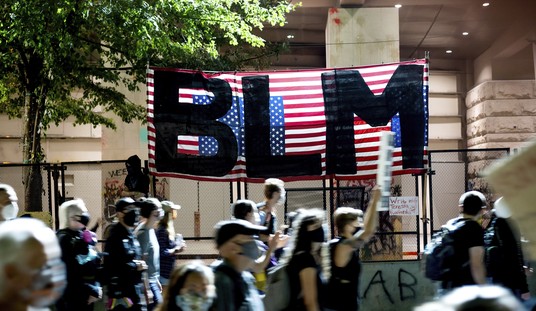A bipartisan panel of retired military commanders has concluded that Congress should repeal “don’t ask, don’t tell” and allow gays to serve openly in the military. One commander helped Bill Clinton implement the current policy in 1993 but says it’s flawed by an assumption of disruption when no evidence exists for it. The study, commissioned by UC Santa Barbara, found no evidence that gays serving openly would affect morale, unit cohesion or readiness:
Two of the officers on the panel have endorsed Democratic candidates since leaving the military — Army Lt. Gen. Robert Gard, who supports Barack Obama, and Marine Corps Gen. Hugh Aitken, who backed Clinton in 1996.
Air Force Lt. Gen. Robert Minter Alexander, a Republican, was assigned in 1993 to a high-level panel established by the Defense Department to examine the issue of gays in the military. At one point, he signed an order that prohibited the military from asking a recruit’s sexual orientation. …
Navy Vice Adm. Jack Shanahan said he had no opinion on the issue when he joined the panel, having never confronted it in his 35-year military career. A self-described Republican who opposes the Bush administration’s handling of the Iraq war, Shanahan said he was struck by the loss of personal integrity required by individuals to carry out “don’t ask, don’t tell.”
“Everyone was living a big lie — the homosexuals were trying to hide their sexual orientation and the commanders were looking the other way because they didn’t want to disrupt operations by trying to enforce the law,” he said.
The study will no doubt come under scrutiny for its source. The Michael Palm Center sponsored this study, and it is not a disinterested party to this issue. It champions gay rights as part of its mission. That will have critics saying that the study itself is unreliable and biased from the start.
However, most studies on contentious issues get sponsored by organizations with dogs in the fight, and to dismiss it out of hand would be unreasonable without considering the retired commanders who ran it. According to this report of the study, they found the basic problem of “don’t ask, don’t tell” too large to overcome: an assumption of disruption without any evidence of it. Indeed, the success of DADT would tend to argue otherwise; gays serve without disruption and the military values their service, until the moment they reveal their orientation.
Supporters of the ban have argued that the potential for disruption has never been disproven, but one cannot prove a negative. Evidence exists in other Western forces that gays serve openly without affecting unit morale or performance; British and Israeli militaries have long allowed gays to serve openly, and they have suffered no loss in readiness. As Admiral Shanahan notes, DADT itself creates morale problems with its hypocrisy and necessary deception on the part of everyone involved.
DADT could be considered a necessary bridging step between the outright ban on gays in the military and full acceptance. Congress needs to ask whether the policy has outlived its usefulness and — importantly — whether this moment will serve best as a launching point for a more reasonable policy. The military has spent 15 years admitting, at least tacitly, that gays can serve their nation with honor and distinction.







Join the conversation as a VIP Member